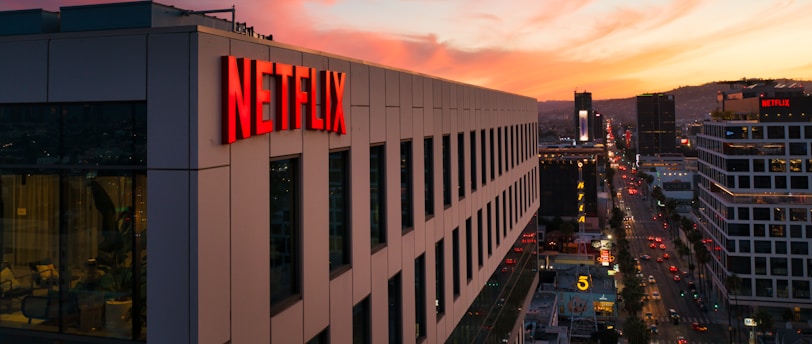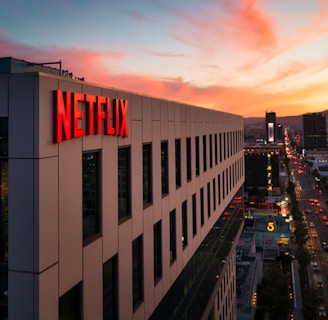Stocks Likely to Stay Strong Despite Trump’s Tariffs
In light of rising tariffs and growing economic uncertainty under Trump’s trade policies, investors need to focus on resilient companies. This article highlights five top stocks — Microsoft, Alphabet, Netflix, Viatris, and TJX Companies — that are naturally positioned to withstand tariff pressures thanks to their digital business models, global diversification, and essential products. These companies offer stability and opportunity even as traditional supply chains face disruption.
Erik W.
4/27/20254 min read


With the recent escalation of tariffs under President Trump, many investors are understandably concerned about the broader effects on the U.S. economy. Tariffs typically drive up costs for companies reliant on global supply chains and imported goods, while also potentially slowing consumer demand. In times like these, it is crucial to identify stocks that are well-positioned to weather the storm, companies whose business models, sectors, and operational structures make them inherently resilient to tariff pressures.
Here’s a closer look at five companies that are best equipped to remain strong even as tariffs rise and economic uncertainty looms.
1. Microsoft Corporation (MSFT)
Sector: Technology (Software)
Market Cap: $2.91 trillion
Current Price: $391.85
PE Ratio: 31.55
Microsoft remains a powerhouse in the global tech sector, and notably, a company largely insulated from the direct impacts of tariffs. Unlike hardware manufacturers, which heavily depend on overseas parts and assembly, Microsoft generates the majority of its revenue from software, cloud computing (Azure), and subscription services, such as Microsoft 365.
Since software is a digital product, it doesn't cross physical borders the way manufactured goods do, making it far less vulnerable to tariff costs. Additionally, Microsoft’s dominant position in both consumer and enterprise technology gives it strong pricing power, allowing it to pass on any small increases in costs without significant loss of demand. With a cash-rich balance sheet and wide moats in critical sectors, Microsoft is a safe harbor for investors amid rising trade tensions.
2. Alphabet Inc. (GOOGL)
Sector: Technology (Digital Advertising, Cloud Services)
Market Cap: $1.95 trillion
Current Price: $163.85
PE Ratio: 18.29
Alphabet, the parent company of Google, is another company naturally shielded from the adverse effects of tariffs. Its revenue streams primarily come from digital advertising on platforms such as Google Search, YouTube, and Google Maps, as well as its rapidly growing cloud services business, Google Cloud.
Because Alphabet’s core products are delivered digitally, they are unaffected by traditional trade barriers. In addition, Alphabet has a truly global audience, reducing its reliance on any single country’s economic health. Even during periods of slower economic growth, businesses still need to advertise often more aggressively to maintain their market share, which helps Alphabet maintain steady cash flows. Alphabet’s immense cash reserves and minimal exposure to manufacturing risk also make it one of the best defensive picks in a tariff-heavy environment.
3. Netflix Inc. (NFLX)
Sector: Entertainment (Streaming Services
Market Cap: Approximately $468 billion
Current Price: $1,101.53
PE Ratio: 52.08
When it comes to global digital entertainment, Netflix is a clear leader that stands apart from companies that rely on physical goods and traditional retail channels. Its entire service is delivered digitally, bypassing the need for manufacturing, shipping, or imported goods that tariffs could hit.
Netflix’s model, providing on-demand content via subscriptions, makes it largely immune to the risks of increased tariffs. Additionally, during periods of economic uncertainty or consumer belt-tightening, affordable home entertainment often experiences increased demand. Instead of spending on pricier outside experiences, consumers are more likely to opt for a night in with streaming content. Netflix's strong brand loyalty, global reach, and recurring revenue model make it a compelling investment as tariffs start to impact traditional consumer spending.
4. Viatris Inc. (VTRS)
Sector: Healthcare (Pharmaceuticals)
Market Cap: $9.7 billion
Current Price: $8.13
PE Ratio: 5.26
Healthcare is traditionally a defensive sector; people need medicine regardless of the broader economic situation. Viatris, a global pharmaceutical company specializing in both generic and branded drugs, stands out as a company particularly well-positioned to mitigate tariff risks.
Viatris benefits from diversified manufacturing operations worldwide, meaning it is not overly reliant on any single country's supply chain. Moreover, many governments prioritize access to affordable medications, meaning tariffs are less likely to impact essential drugs compared to luxury or discretionary goods. As healthcare needs continue to grow globally, Viatris’s business model ensures a steady demand for its products, making it a sound pick for risk-averse investors during volatile times.
5. TJX Companies Inc. (TJX)
Sector: Retail (Off-Price Apparel and Home Goods)
Market Cap: $141 billion
Current Price: $126.56
PE Ratio: 29.64
While traditional retailers may struggle under the weight of higher import costs, TJX Companies, owner of T.J. Maxx, Marshalls, HomeGoods, and Sierra, operates on a very different model. TJX is an off-price retailer that purchases overstock inventory from other retailers and suppliers, often at steep discounts.
This opportunistic sourcing strategy not only keeps TJX’s costs low but also makes it highly adaptable. If tariffs raise prices for traditional retailers, TJX can benefit by acquiring excess inventory that other stores cannot sell. Additionally, during economic slowdowns, consumers typically become more price-sensitive, opting for discount retailers over premium brands, precisely the kind of environment where TJX thrives.
As a result, TJX is uniquely positioned to navigate and even capitalize on the market shifts caused by higher tariffs.
Summary: A New Playbook for a Changing Economy
In a world where tariffs and economic nationalism are on the rise, the old rules of investing no longer entirely apply. Today, companies that are less dependent on physical goods, more globally diversified, and essential to consumers’ lives are the ones best positioned to thrive.
Take Microsoft, for example, a technology giant with a software-centric business model and strong pricing power, allowing it to navigate cost pressures with ease. Alphabet, the parent of Google, stands out as a leader in digital advertising and cloud services, backed by a massive cash reserve that provides added stability. Netflix also shines in this environment, thanks to its digital delivery model and the consistent demand for affordable entertainment, even during economic downturns.
In healthcare, Viatris is a strong contender, offering essential pharmaceutical products with a global footprint that makes it less vulnerable to the trade policies of any single country. Meanwhile, TJX Companies, owner of T.J. Maxx and Marshalls, benefits from an opportunistic sourcing model that thrives when traditional retail struggles, making it highly resilient during economic slowdowns.
Investors looking to navigate this changing landscape would be wise to focus on companies like these, which are built to endure and succeed even when global trade winds shift.